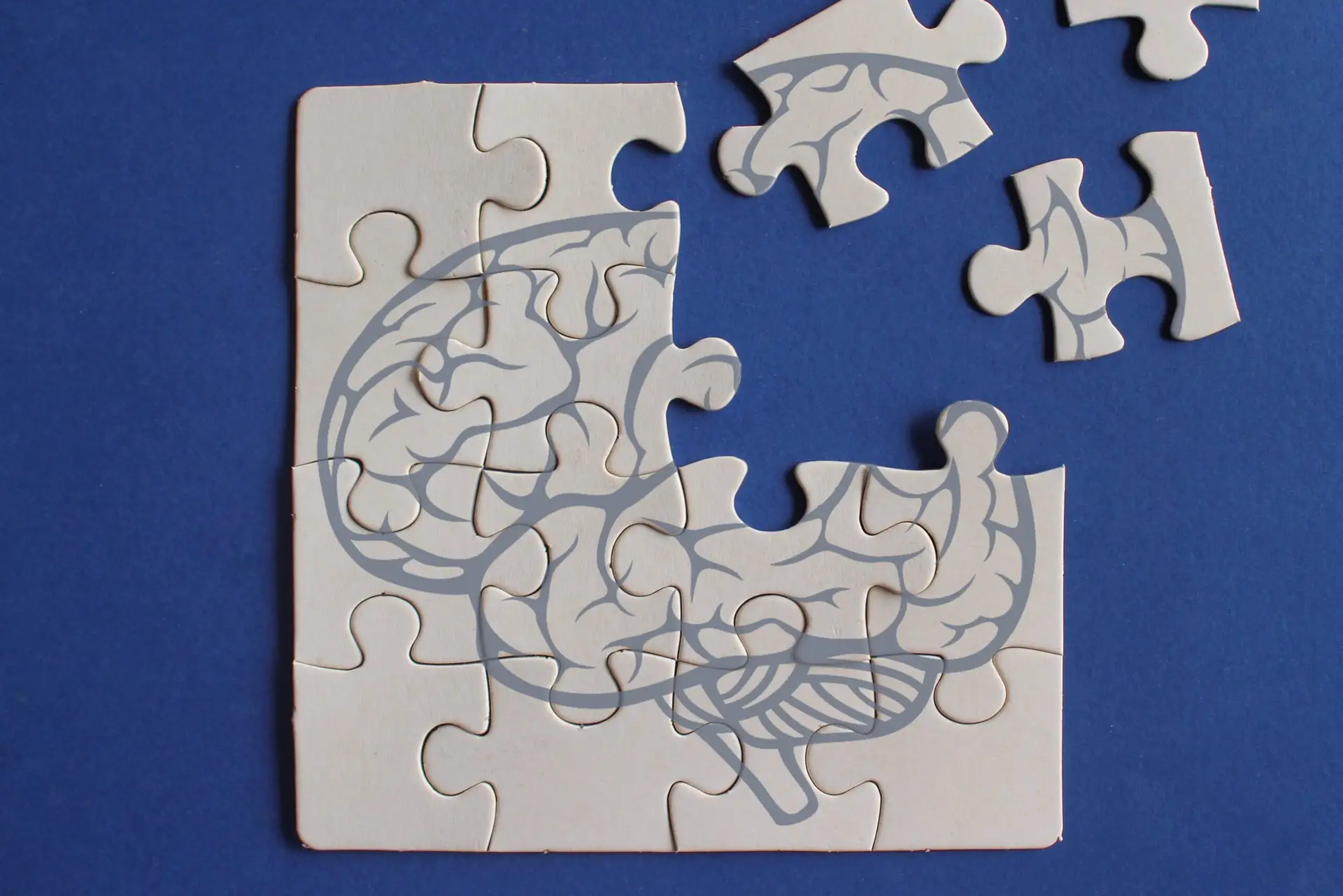How to Know if it’s Just Forgetfulness or Something More?
A calm clear guide to recognizing early cognitive changes in aging loved ones
Understanding Normal Age-Related Forgetfulness
As loved ones grow older, occasional memory lapses are to be expected. Forgetting where the keys are, struggling to recall a name, or walking into a room and pausing to remember why, these are typical signs of age-related forgetfulness. They are frustrating, but not necessarily a cause for concern.
According to the National Institute on Aging, normal forgetfulness can begin as early as the 50s or 60s and gradually increase with time. It often involves mild disruptions in short-term memory, such as forgetting appointments, misplacing items, or needing more time to learn something new. However, seniors with normal memory changes typically retain the ability to function independently, recall important life events, and adapt with strategies like note-taking or setting reminders.
Some examples of common, age-appropriate memory lapses include:
- Taking longer to recall a familiar word
- Occasionally forgetting where you left an item but finding it later
- Missing a monthly bill but recognizing and correcting the error
- Forgetting the name of someone you just met, but remembering it later
- Walking into a room and needing a moment to remember the purpose
Importantly, these moments do not significantly impact daily life. Seniors with normal forgetfulness can still carry on conversations, maintain their routines, and participate in activities without major disruption.
Understanding what is typical helps families avoid overreacting to every small lapse. Memory changes are part of aging, but they should not prevent someone from living independently or making sound decisions. The key is to know when these changes are consistent with healthy aging and when they suggest something more serious might be happening.
Red Flags That May Signal Cognitive Decline
While occasional forgetfulness is expected with age, some memory changes point to a deeper concern. The challenge for many families is distinguishing between harmless lapses and the early signs of cognitive decline.
Mild Cognitive Impairment (MCI) and the early stages of dementia often present in subtle but persistent ways. These changes typically affect more than just memory and can interfere with daily life, communication, emotional health, or safety.
Here are some red flags that may indicate it is time to take a closer look:
- Frequent repetition of the same stories, questions, or comments within a short span
- Getting lost in familiar places or struggling with directions they used to know well
- Forgetting important events such as birthdays, appointments, or financial obligations
- Misplacing items and being unable to retrace steps to find them
- Difficulty with language, such as forgetting common words, substituting incorrect ones, or having trouble following conversations
- Noticeable changes in judgment, such as poor financial decisions or risky behaviors
- Withdrawal from activities, hobbies, or social interactions they once enjoyed
- Neglecting hygiene, meals, or housekeeping without clear physical limitations
- Mood or personality changes, including irritability, anxiety, paranoia, or uncharacteristic outbursts
One or two of these symptoms, especially if mild and infrequent, may still fall within normal aging. But a pattern of increasing severity or frequency is worth noting.
It is also important to consider context. Stress, depression, medications, and infections can temporarily affect memory. However, if the changes persist or worsen over time, it may indicate a cognitive condition that requires evaluation.
How Families Can Observe Without Jumping to Conclusions
It can be difficult to bring up concerns about memory or behavior, especially when emotions are involved. Many adult children hesitate to say something out of fear they are overreacting. Others may feel unsure whether what they are seeing is truly cause for concern.
Rather than guessing, one of the most helpful steps a family can take is to begin observing and documenting changes over time. This does not mean turning daily life into a checklist, but it does mean paying attention to patterns.
Here are a few simple ways to start:
- Write down specific examples of memory lapses or behavior changes, noting the date and context
- Look for frequency, not just isolated incidents
- Track emotional shifts such as anxiety, frustration, or social withdrawal
- Observe daily functioning like bill payment, meal prep, medication adherence, and housekeeping
- Notice communication struggles, such as repeated confusion about time, appointments, or familiar topics
This documentation can be helpful later if a medical evaluation becomes necessary. It provides a clearer picture for healthcare providers and helps separate occasional slips from more consistent concerns.
It is also important to approach conversations with sensitivity. Instead of framing things as “something is wrong,” consider asking how your parent has been feeling lately or whether they have noticed any changes in memory or focus. Using open-ended questions allows for a more respectful and collaborative tone.
Finally, avoid jumping to conclusions or using alarming language. Memory changes are common, and many causes are treatable. The goal is not to label, but to understand what is happening and support your loved one with compassion and clarity.
When and How to Seek a Professional Evaluation
If concerns about a loved one’s memory or behavior persist over time, the next step is not to panic, it is to seek a professional evaluation. An early diagnosis, whether of Mild Cognitive Impairment (MCI) or another condition, can give families time to plan, provide support, and explore appropriate care options.
Start with your loved one’s primary care physician. They can conduct a preliminary screening and rule out common reversible causes of memory loss, such as vitamin deficiencies, medication side effects, or depression. From there, they may refer you to a neurologist, geriatrician, or memory specialist for further assessment.
There are several tools that providers may use during this process:
- MoCA (Montreal Cognitive Assessment): A 30-question test designed to detect early signs of cognitive impairment
- Mini-Cog: A brief screening that combines recall and clock-drawing tasks
- Five-Cog Screening Tool: A newer model developed for primary care settings to assess memory, language, and executive function
These tools do not provide a diagnosis on their own. Instead, they are part of a broader evaluation that may include physical exams, lab work, neuroimaging, and in-depth interviews.
In Houston and across Texas, many hospitals and senior centers offer memory clinics and geriatric assessment programs. Some also provide caregiver support services and educational resources to help families navigate next steps.
Early evaluation can bring clarity and peace of mind. Whether the results confirm normal aging or point to something more, having a trusted medical perspective helps families move from guessing to planning. The sooner concerns are addressed, the more options are available.
Texas-Specific Statistics and Support Resources
Understanding the local landscape can make a significant difference for families navigating memory concerns. In Texas, the need for cognitive health resources continues to grow as the senior population expands.
According to the Alzheimer’s Association, more than 400,000 Texans are currently living with Alzheimer’s disease. In Harris County alone, thousands of new cases are diagnosed each year. Houston is home to a large aging population, which means access to screening, education, and caregiver support is critical.
Fortunately, families in the Houston area have several well-regarded resources at their disposal.
Memory Clinics and Geriatric Assessment Centers:
- UTHealth Houston Center for Healthy Aging: Offers comprehensive cognitive evaluations, memory screenings, and geriatric care services
- Houston Methodist Neurological Institute: Provides diagnostic tools and treatment planning for memory disorders
- Baylor College of Medicine Alzheimer’s Disease and Memory Disorders Center: Specializes in research-based assessments and early intervention strategies
Community Support and Education:
- Alzheimer’s Association Houston & Southeast Texas Chapter: Offers free programs for families, including memory screenings, support groups, and care consultations
- Amazing Place Houston: Provides programs for individuals with mild to moderate dementia, caregiver resources, and wellness initiatives
- Houston and Harris County Area Agencies on Aging: Connect residents with services related to transportation, meals, in-home support, and caregiver respite
These organizations understand that early signs of cognitive change can be overwhelming. They offer the tools and education families need to take proactive steps, seek professional advice, and find the right level of support.
How Graceful Transitions Can Help
When families begin to notice changes in a loved one’s memory, it can feel like stepping into unfamiliar territory. You may find yourself asking hard questions without clear answers. Is this normal aging? Is this the beginning of something more serious? And most importantly, what should we do next?
At Graceful Transitions, we understand that uncertainty. We support families every day who are navigating early signs of cognitive change and trying to balance concern with compassion.
We do not diagnose or provide medical treatment. But we do help families take thoughtful, informed steps when it comes to housing and care. If memory changes are beginning to impact daily routines, safety, or independence, we can guide you through the process of identifying what type of support might be appropriate, whether that means considering assisted living with memory care capabilities or simply helping you ask the right questions during a tour.
Our approach is built on advocacy and understanding. We listen first, then work to align care options with your loved one’s personality, preferences, and medical needs. We also stay involved during the transition, so your family never feels left alone.
For families in the Houston area, we have deep relationships with a wide range of communities and care providers. That allows us to offer insights beyond brochures and websites. We help you see behind the scenes and choose options that feel not just adequate, but right.
You do not need to navigate these decisions on your own. Graceful Transitions is here to support you with clarity, kindness, and a steady hand, every step of the way.

